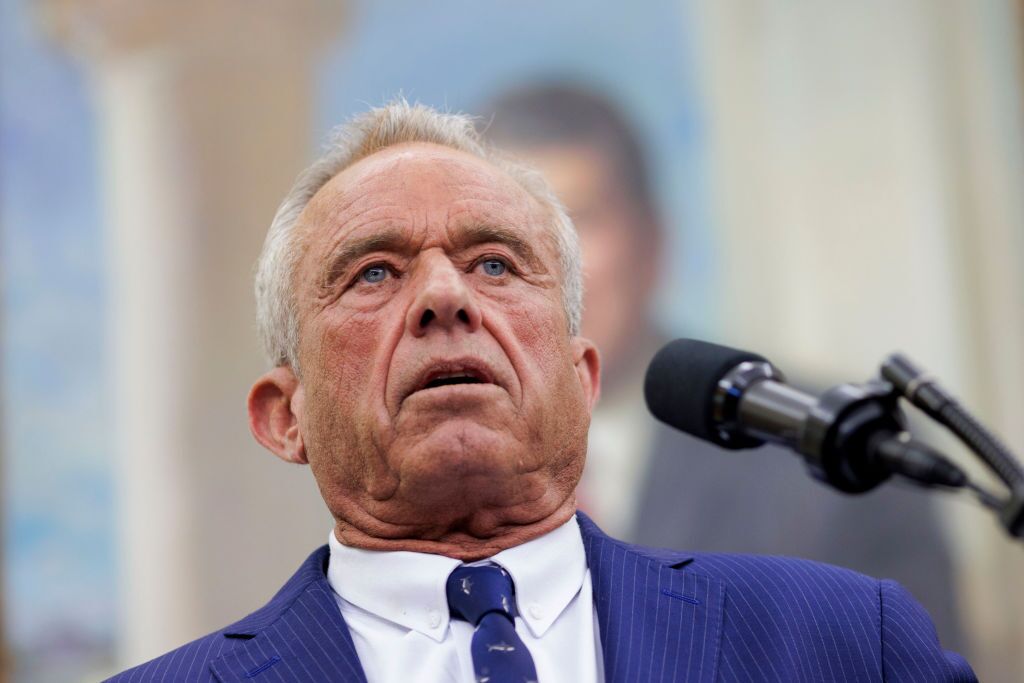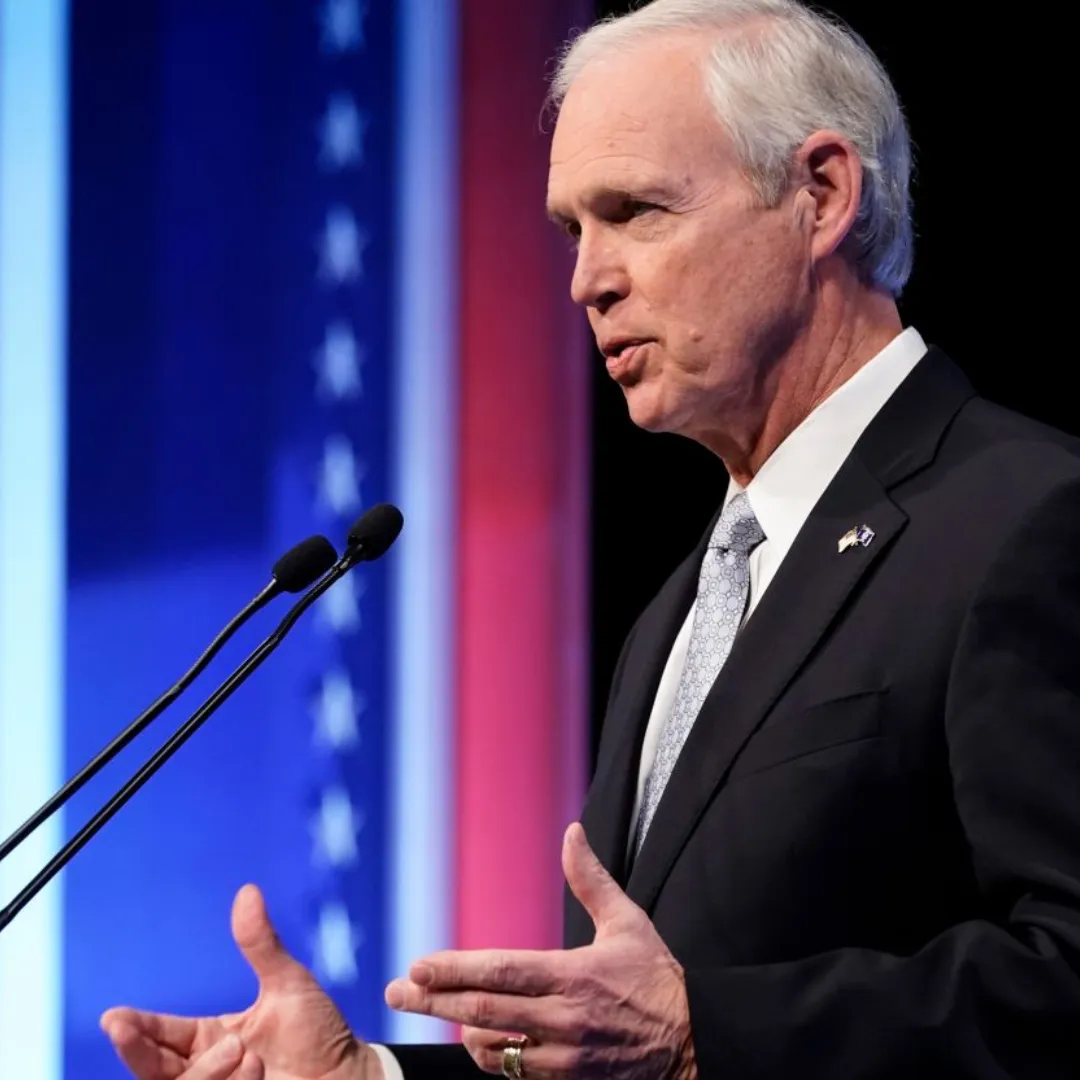Thousands of federal health agency workers across the United States are facing uncertainty as they prepare for possible mass layoffs. Employees at agencies such as the Food and Drug Administration (FDA) were informed that they may not return to their jobs after a major shake-up in the Department of Health and Human Services (HHS).
This restructuring follows the announcement from HHS Secretary Robert F. Kennedy Jr. regarding a significant overhaul of the department. The reorganization plan is set to reduce the workforce by a staggering 20,000 positions, with 10,000 of those cuts to come through layoffs.
The news has sent shockwaves through the public health sector, leaving nearly 82,000 employees uncertain about their future. Many of those affected are working in critical areas such as infectious disease prevention, public health initiatives, and research.
As of Monday, workers were told to check their email for potential job elimination notices, which would also involve losing access to government buildings. The situation has left employees on edge, awaiting news about their future and wondering how the cuts will affect the nation’s public health infrastructure.
The cuts have been expected since Secretary Kennedy's announcement last week that he would streamline operations at the HHS in an effort to address what he described as a “sprawling bureaucracy.” Kennedy criticized the department’s $1.7 trillion yearly budget, arguing that it had failed to improve the health of Americans.
As part of the restructuring, Kennedy plans to fold entire agencies, such as the Substance Abuse and Mental Health Services Administration (SAMHSA), into a newly formed Administration for a Healthy America. This overhaul is expected to eliminate a significant number of jobs, particularly in areas where there is perceived overlap or inefficiency.
FDA workers were among the first to receive emails indicating that their positions could be at risk. The email, obtained by The Associated Press, informed employees that they should prepare for the possibility of losing their jobs and being locked out of government buildings.
Some employees have already begun to pack up their workstations, uncertain whether they would return the next day.
This mass uncertainty has created an atmosphere of anxiety and fear among the workers, many of whom are involved in crucial public health initiatives, from vaccine research to disease control.
With layoffs looming, employees are left with questions about how their work will be affected and how the reorganization will impact public health efforts nationwide.
While the reorganization has been hailed by some as necessary for reducing inefficiencies within the department, others have expressed concerns about the potential impact of such massive cuts. Anand Parekh, who served in the department during both the Bush and Obama administrations, has raised doubts about the speed with which Kennedy has moved to implement these changes.
As the current chief medical adviser at the Bipartisan Policy Center, Parekh questioned whether Kennedy’s short time in office – just over a month – has allowed him to fully understand the workings of the department.
Parekh expressed concerns that the cuts were being made without a thorough examination of the needs and impact of each agency. "One would hope that as they made these cuts, they really did a deep dive," Parekh said. "It’s not quite clear from a transparency perspective how they got from where they were to here."
This lack of transparency regarding the decision-making process has raised alarms about the fairness and efficacy of the reorganization. Critics argue that by slashing jobs across multiple health agencies without a clear, evidence-based rationale, the government risks weakening essential public health infrastructure at a time when the country is still grappling with the aftermath of the COVID-19 pandemic.
Perhaps one of the most concerning aspects of the layoffs is their impact on the country’s ability to respond to infectious diseases. On Friday, several employees in the Office of Infectious Disease and HIV/AIDS Policy, which is responsible for efforts to control the spread of infectious diseases, were told they would be put on leave.
The office, which plays a vital role in coordinating national efforts to address HIV/AIDS, tuberculosis, and other diseases, was left empty overnight. Employees began posting about the office’s closure on LinkedIn, raising concerns about the future of critical health programs.
An HIV and public health expert who works directly with the office told The Associated Press that all of the staff had been asked to leave.
This sudden move has led to fears that ongoing efforts to improve the nation’s health will be put at risk. Dr. Robert H. Hopkins Jr., the former chair of the National Vaccine Advisory Committee, expressed concern over the potential long-term damage this could cause to vaccine research and other public health initiatives. “It puts a number of important efforts to improve the health of Americans at risk,” Hopkins stated.
While an HHS official assured the public that the office was not being closed permanently, the decision to consolidate work and reduce redundancies has raised doubts about the continuity of these critical programs.
The reorganization plan also led to the shutdown of the Office of Minority Health's website, with an error message indicating that the page "does not exist." This move, along with the layoffs, has contributed to growing concerns about the erosion of public health services.
The effects of the cuts are not limited to federal agencies alone. State and local health departments are also grappling with significant reductions in funding. In addition to the job cuts within HHS, more than $11 billion in COVID-19-related funding has been pulled back, further exacerbating the financial strain on state and local health systems.
Lori Tremmel Freeman, the chief executive of the National Association of County and City Health Officials, reported that local health departments have already identified hundreds of jobs that are at risk due to the loss of funding. Some positions have already been eliminated, while others are expected to be cut soon.
“Some of them overnight, some of them are already gone,” Freeman said, emphasizing the speed at which these cuts are being implemented.
These cuts to local and state health agencies are particularly concerning given the ongoing challenges posed by the pandemic. State and local health departments have been on the front lines of the COVID-19 response, handling testing, vaccination efforts, and contact tracing.
The loss of funding and jobs in these areas could severely hinder the ability of health departments to respond to future public health emergencies.
For the 82,000 employees across the nation’s health agencies, the uncertainty surrounding their future is a major source of stress. The prospect of losing one’s job, particularly in a field as critical as public health, has left many workers feeling vulnerable.
As one FDA employee put it, the possibility of losing access to government buildings and their job simultaneously is "beyond nerve-wracking."
Some workers have already begun packing their desks, unsure whether they will return. Others are anxiously checking their emails in hopes of avoiding the dreaded "pink slip" notice.
The constant uncertainty has created a tense atmosphere within the agencies, and many workers are questioning how they will be able to continue their work and support their families if they lose their jobs.
The potential impact of these cuts on public health cannot be overstated. Public health agencies are essential for preventing the spread of diseases, providing vaccines, and coordinating emergency responses.
The loss of thousands of skilled workers could severely undermine these efforts and jeopardize the health and safety of Americans.

As the reorganization continues to unfold, questions about the priorities of the Department of Health and Human Services remain. Critics have argued that Kennedy’s plan to eliminate jobs without a clear understanding of the departments’ operations could have disastrous consequences.
In a time when public health is more critical than ever, cutting jobs in essential services like infectious disease prevention and health equity could set the country back in its efforts to improve the well-being of all Americans.
The future of the nation’s public health system now hangs in the balance. With health agencies across the country facing major layoffs and cuts, the government will need to carefully assess the consequences of these decisions.
The reorganization is set to change the landscape of public health in America, and whether it will result in a more efficient, effective system or a weakened infrastructure remains to be seen.




